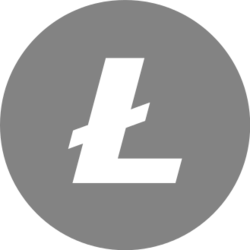Despite the world disruption due to coronavirus there was successfully held CryptoCompare Digital Assets Summit in London, where Anna Tutova, CEO of Coinstelegram Agency had chance to meet with Charles Hayes, Founder&CEO of CryptoCompare, independent global cryptocurrency market data provider, giving institutional and retail investors access to real-time, high-quality, reliable market and pricing data.
Anna discussed with Charles current market situation and how Coronavirus pandemic influenced it.
Anna Tutova: What is your background? How did you get into blockchain industry?
Charles Hayter, Founder&CEO CryptoCompare: I worked in finance as an analyst covering multiple sectors from solar through to oil and gas and quants. After a stint in Africa after the ’08 crisis I worked at Citi and then tried a couple of entrepeneurial ventures in property etc. A degree in physics helped as well as completing the CFA to give a rounded bedrock of information to understand cryptography and finance. Ultimately I took the plunge into digital assets in 2013 when I realised you had something that anyone could transfer to anyone else anywhere at anypoint in time. This was the potential to revolutionise the dollar and M0 to give it a new medium – like Radio moving to TV.
– How did you decide to found CryptoCompare?
– When I first looked into digital assets there was a lack of reliable market data. It was clear that in order for the industry to mature and grow, this was a problem that needed solving. This led my co-founder Vlad and I to start CryptoCompare.
– We see now massive sell-off on stock, commodities and cryptocurrency markets. Can you comment current market situation? How global pandemics as corona virus influence cryptocurrency market?
– It’s clear that the major market sell-off as a result of the coronavirus pandemic has extended into crypto markets as traders globally seek to free up capital as equity prices tumble. The latest market slide has shown that bitcoin and crypto markets may be more correlated with traditional markets than many had hoped. Nonetheless, with quantitative easing and central bank intervention set to ramp up enormously and with bitcoin’s halving approaching, many investors see the conditions as ripe for bitcoin to fulfil its role as a deflationary asset.
This crisis is raising the question of what exactly is money – Governments are being forced to open the doors to MMT which removes the mirage of fiat. It might be difficult to go back from this unveiling but what choice do governments have – there are the ghosts of Hayek and Keynes in these arguments. Under these circumstances we may see a shift to assets that cannot be perpetually diluted instead of papering over the cracks. For the moment cash is the only port in the storm but that may prove to be a false hope in the mid to long term.
– Do you think that there are too many traders on futures market, what causes so many liquidations?
– We have seen strong growth in the derivatives market, and a growing number of traders typically results in greater liquidity, which is good for digital asset markets. The record high in liquidations was caused by the rapid price decline due to the coronavirus panic.
– What is your opinion on stablecoins? And what do you think about MakerDAO net loss for the system due to absence of competition?
– Stablecoins are a key part of digital asset markets, offering traders and investors a stable asset which is particularly useful in times of high market volatility. MakerDAO is at the forefront of digital asset innovation and it is taking on extra risk in paving the way for DeFi. Ultimately MakerDAO and the DeFi sector will become more resilient as a result of the market test.
– What is your price prediction for Bitcoin? What is the maximum can we see this year?
– The uncertainty of the coronavirus has made predictions difficult. I will say that I expect to see bitcoin outperform and potentially decouple from US markets such as the S&P 500. This may be in part due to the upcoming halving as well as the fact that crypto markets are less directly affected by the virus.




























